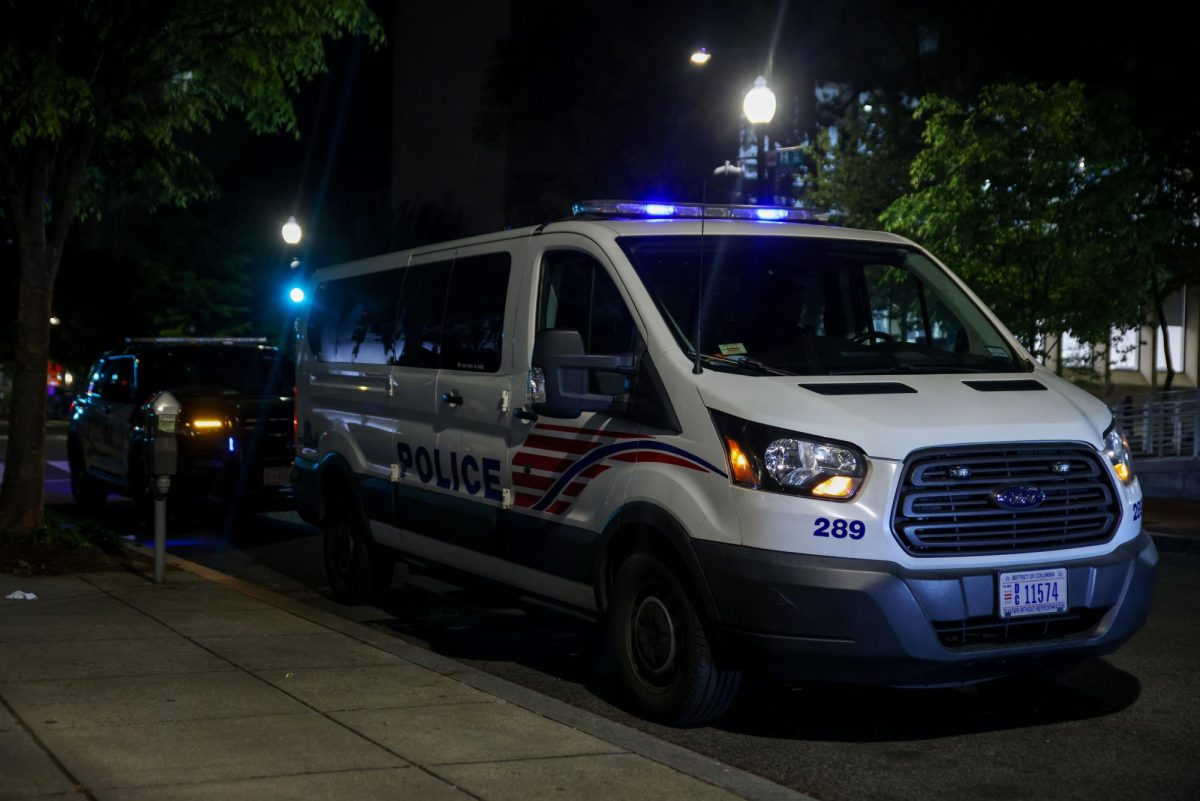The academic centers that strengthen international students’ English skills are skyrocketing in popularity as the number of foreigners at GW climbs.
The heightened demand for the University’s Language Center and the Writing Center – which work with students to improve English writing skills – has both centers pining for more resources to add staff, summer sessions and programming.
Forty-five percent more undergraduates this fall are taking the Language Center’s English skills courses, which teach students how to write papers and give class presentations. International students who score below a specific benchmark on the Test of English as a Foreign Language, or TOEFL, must enroll in an additional English skills course in their first semester.
About 330 graduate students are in Language Center courses this fall, two-thirds more than last year.
Overall enrollment in English for Academic Purposes courses quadrupled over the past four years, with two new courses for graduate students in English-strengthening classes added in the past two years.
Director of the Language Center Shoko Hamano said even for the small number of EAP students who have studied in the U.S. before, some “still find the task of completing academic writing assignments challenging.”
She added that the program gives students the chance to acclimate to an American classroom in which “your professor is sensitive to the challenges of writing in a second language.”
GW’s more than 2,500 international students hail from 130 countries, with 40 percent of students coming from China and South Korea. These students must then overcome language barriers while learning Western academic styles. The University will officially tally its international student enrollment for the 2012-2013 academic year later this month.
The demand will likely continue climbing, Columbian College of Arts and Sciences Dean Peg Barratt said, as the University prioritizes globalization and foreign recruitment to help campus diversity and improve GW’s international stature. Nearly all undergraduate international students pay full tuition.
About 10 percent of GW students are international, but administrators have suggested they are seeking even higher foreign enrollment rates, comparable to Boston University’s foreign student rate of 16 percent.
The University saw a 40 percent surge in foreign graduate students this year – the fourth year enrollment had jumped.
Barratt said administrators are planning to add more English skills course sections this year to keep class sizes down, adding that she also hopes to add summer courses to help students prepare for the fall.
“That increase in international admission has definite implications for us,” she said.
Charles Mueller, an assistant professor who teaches English skills courses, said the department, housed in the Academic Center, is constantly hiring part-time professors to teach the additional class sections. He added that grading the English placement test that GW requires international students is now a massive task.
“That process is a lot more complex when you’re dealing with 400 students instead of 50. It makes a big difference,” Mueller said.
But the courses do not fully equip students to handle classes like University Writing, sophomore Wonman Hong, who took an English language course after coming to GW from South Korea last year, said.
Wong said while he thought it was “a good program to understand culture of Washington D.C. and U.S. college writing style,” he still fell behind in his University Writing class, because the English skills course didn’t emphasize paper citations and grouped together students with a wide array of English skills.
He added that because half of his English skills classmates were from China and the other half from South Korea, they only spoke to each other in their native languages.
“GW is providing everything, but [students] are not using it,” the international affairs major said.
The number of foreign students also affects the Writing Center, which provides free tutoring on academic writing for undergraduate and graduate students. Christy Zink, the Writing Center’s director, said 43 percent of students who got help last year did not speak English as their first language.
The Writing Center scheduled 5,200 appointments last year overall, a 16 percent jump from the year before, partly bolstered by foreign student sessions. The heavy traffic also prompted the Writing Center to hire seven more tutors than it had during the previous two years.
When training the student tutors who work at the Writing Center in Gelman Library, Zink said she integrates lessons more and more on how to teach international students techniques like how to use the articles “a,” “an” and “the.”
Junior Michelle Cho, in her second year as a Writing Center tutor, said international students make up about half her workload and many have not picked up grammar skills in their classes.
“They use the writing center like a grammar fix-it work shop,” she said.
Zink added that the perspectives of international students help strengthen the campus and the Writing Center.
“Our own sense of what English and academic writing can do is both deepened and heightened as we work with students across language experiences to help them become better writers,” Zink said.
She added that while the Writing Center and Language Center serve similar functions for international students, she is in close talks with Language Center director Shoko Hamano about what resources they need to add for international students. For example, they could add a practical and cultural component like how to take money out of an American bank, she said.
“What are the questions we need to ask about those balances [of international students] and how do we figure out how are we meeting student demands and what are the resources we want to lobby for internally,” she said. “We need to have a very close ear to the ground for the students.”
Cory Weinberg contributed to this report.







